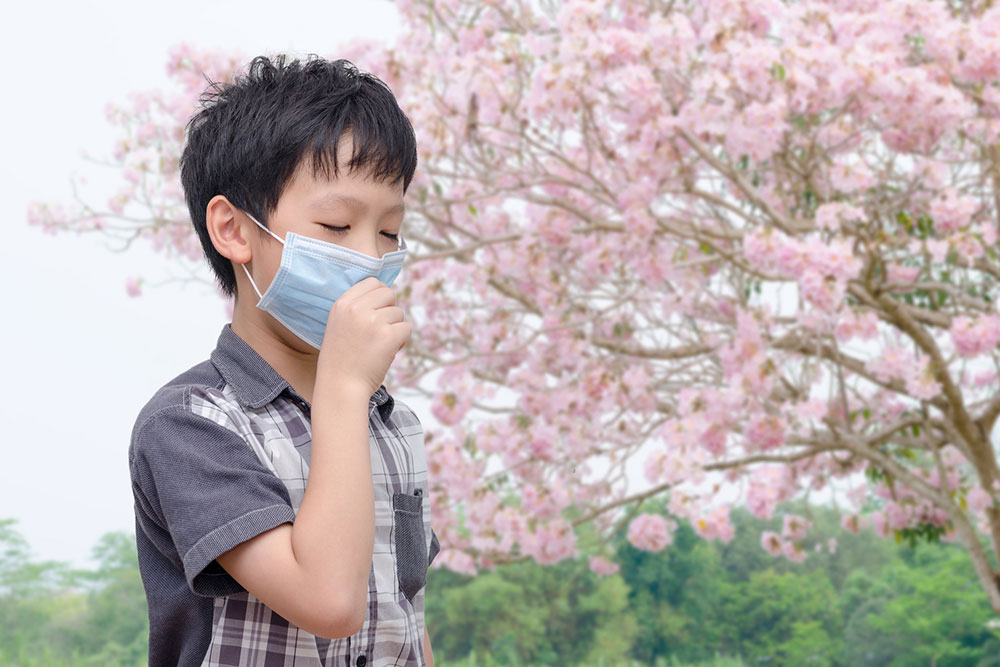All You Need to Know about Signs of Pollen Allergies
All You Need To Know About Signs Of Pollen Allergies
Pollens are a yellow, powdery substance emitted by plants. These get transported from one plant to another by birds or by wind or by insects and/or animals. About 10 million Americans get pollen allergies as a result of exposure to this powdery yellow substance. Signs of pollen allergies start appearing when you are exposed to grass pollens, tree pollens, and weed pollens.
Common Causes Behind Pollen Allergies
Pollen allergies are primarily caused by the exposure to pollen grains in the air. Certain plants and trees like oak trees, ragweed and grasses produce a fine yellow powder, pollens, as a part of the reproductive process of the plants.

Typically, signs of pollen allergies would develop or aggravate during only certain times of the year. Such allergies may be triggered by tree pollens in spring. These could also be caused by grass pollen around summer season and late spring season.
Risk Factors
The main risk factors associated with the development of pollen allergies are being in an environment where you get exposed to allergy-causing substances. So, if you are exposed to dust mites or to animal dander, you are at a risk of developing pollen allergies. If you have asthma or any other allergies, you can be more susceptible to pollen allergy symptoms. Even if you have a blood relative with a tendency to develop asthma or other allergies, you can be at a risk of developing the tell-tale signs pollen allergies. Those of you who have eczema or atopic dermatitis too can be at a risk of developing pollen allergy signs.
Common Signs of Pollen Allergies
- Typically, signs of pollen allergies are characterized by a runny nose along with nasal congestion.
- You may also have conjunctivitis induced by allergy where your eyes tend to become itchy, red and watery causing you a lot of irritation and discomfort.
- Sneezing is another characteristic symptom of pollen allergies.
- These pollen allergies signs may also be accompanied by the problem of coughing.
- Pollen allergies may also lead you to experience itching in your nose, roof of your mouth or even your throat.
- You may also end up having allergic shiners where the skin under your eyes becomes blue and swollen.
- As a part of the symptoms, you are likely to experience fatigue.
Identifying the Signs of Pollen Allergies
As a part of the process of diagnosis of signs of pollen allergies, your doctor is likely to first conduct a physical examination process. Your doctor will also examine your medical history. They may recommend you to take an allergy blood test. The main purpose of conducting this test is to determine the level of allergens that are present in your bloodstream.
Management And Treatment Of Pollen Allergy Symptoms
Treatment of pollen allergy symptoms is likely to involve certain over the counter drugs, such as antihistamines. To deal with a stuffy nose, decongestants may be used. These will help you breath easier. Nasal sprays can also be used to deal with signs of pollen allergies. When over the counter drugs do not reduce the symptoms of pollen allergies, you may be recommended to go for prescription medicines. These may include nasal ipratropium. Other than that, you can go for oral corticosteroids. Oral corticosteroids can be helpful in giving you relief from severe signs of pollen allergies.
You can also get allergy shots if other medications are not helping you in dealing with symptoms of pollen allergies. It is a form of immunotherapy and involves getting injected regularly with small amounts of allergens. Prescription tablets that tend to dissolve under your tongue may be used to deal with signs of pollen allergies that are caused by ragweed or grass allergies. Another way to relieve you from the problem of nasal congestion is by rinsing your nasal passages or sinuses. By doing this, you flush out the allergens and the mucus from your nose.
Since signs of pollen allergies are caused by airborne allergens, it is not possible to completely protect yourself from these. However, efforts to reduce the symptoms can be carried out by limiting yourself from being exposed to these allergens. You can get your air conditioners fitted with HEPA filters. These work well to remove the pollen in the air and reduce exposure to pollen allergies. It is strongly recommended to watch out for pollen grains entering through open doors and windows. Make sure you keep these shut during certain seasons when pollens get released into the air by wind or because of insects or other animals.
Pollen grains are very small and can get in your eyes or your hair when you go outside. To prevent this from happening, it is recommended that you wear a hat as well as sunglasses when you head out. This is especially important if you have a tendency to develop allergies. Wearing a dust mask while cleaning or gardening is recommended to keep allergies at bay.

